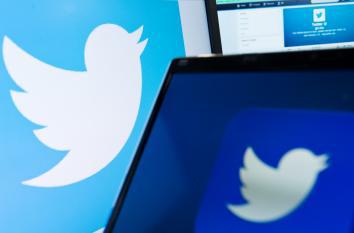Dearest Slate reader: I’d just like to let you know that I intend to kill you.
Calling 911 yet? Why not? I just threatened your life! If not a police call, then my threat at least merits a blog post, right?
Just about every week, it seems there’s a story about a celebrity, athlete, or politician receiving death threats from morons on Twitter. The media often treat these frivolous incidents like they’re a fatwa on Salman Rushdie. The latest example: New York Giants running back Brandon Jacobs, for performing poorly on fantasy football teams. (Fitting there be fantasy threats for a fantasy sport.)
The stories often give the impression that this is some kind of shocking event for which we should pity the “victims,” but anyone who’s spent 10 minutes online knows that these assertions are entirely toothless.
What’s surprising isn’t that death threats on Twitter are happening, but rather that the media seem to be covering them more and more frequently. It’s one thing if public figures are actually being hunted down and attacked by @Chad_Bro697 on the regular, but exactly 0.00 percent of these celebrity threats have even resulted in an assault. It’s like reading on a regular basis that a meteor could in fact crush Mandy Patinkin today.
Erin Andrews, Ted Cruz, Selena Gomez, pretty much every NFL player … They’ve all been in harm’s way of these entirely harmless threats, followed by handwringing coverage in prominent places like Yahoo, the Washington Post, and Mashable. Anna Gunn made a big note in her New York Times op-ed about receiving death tweets for her role as Skyler White in Breaking Bad. Type the name of any public figure and “death threat” into Google or “kill” into Twitter. There’s a good chance you won’t be disappointed—except for, well, with humanity.
As the world becomes more interconnected, it’s easier and easier to catch up with old friends, keep in touch with your parents, and, oh yeah, tell the president that you want to chop his head off. (You can un-flag this, NSA.) Ten or fifteen years ago, death threats were a much bigger deal (i.e., newsworthy), because in the pre-Internet age, if you wanted to tell, say, Tobey Maguire that you were going to dismember him in a dark alley, you really had to go to quite an effort. You’d have to somehow track down his phone number or mailing address, which again, would be very difficult without the Internet. These days, though, death threats are just a few keystrokes away. “@TobeyMaguire Sider house rules sucked. Wach ur back nxt time u come 2 denver. I’ll b waitin.” Send! All of a sudden, you’ve given 50 blogs some nice page view-generating click-bait.
In a piece in the Atlantic last year, Jen Doll wrote: “If there’s anything to be afraid of, it’s this idea that death threats are this kind of new online norm.” They are, in fact, the norm. However, I think it’s also safe to assume that these wannabe Tony Sopranos only represent the lowest trenches of society. Sites like Gawker and BuzzFeed, which like clockwork dredge up dozens of ignorant tweets in response to some major event, often try to paint a vast swath of society as holding these crazy views—like the racists epithets thrown at this year’s Indian Miss America winner Nina Davuluri or reaction to U.S. gymnast Gabby Douglas’ hair. However, it takes large sample sizes and proper polling methods to establish a widespread belief system, not mere cherry-picking from the unsurprising bottom of the Internet cesspool.
So how do we stop this trend of pointless reporting? There really aren’t any clear solutions. There will always be a dark corner of the Internet, so you can’t stop the source. And you can’t tell websites to stop publishing these stories, because they surely generate boatloads of mindless page views. Maybe the solution is to just let the Internet continue to be the Internet, and people will eventually grow bored of this “news.” Or perhaps we should just send death tweets to the writers who report on these occurrences. It seems like they take these threats rather seriously.
